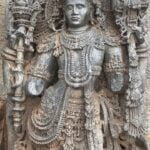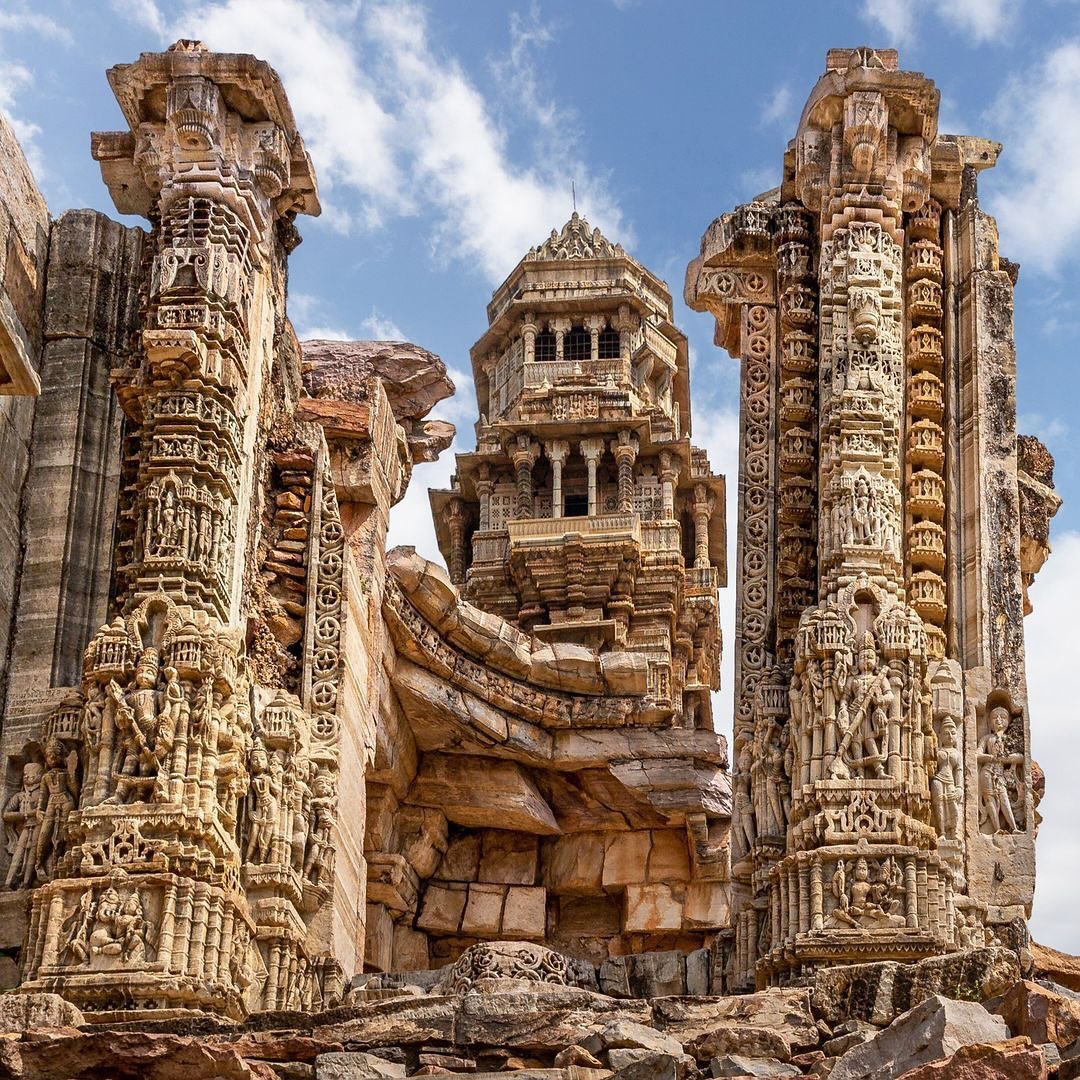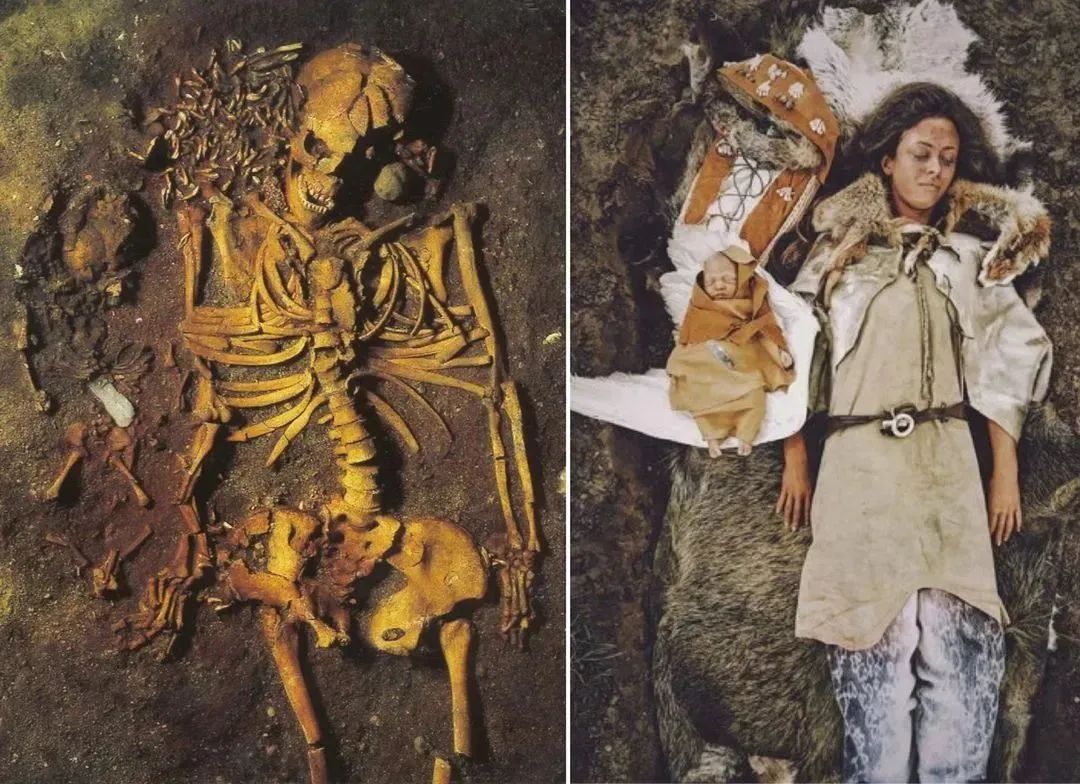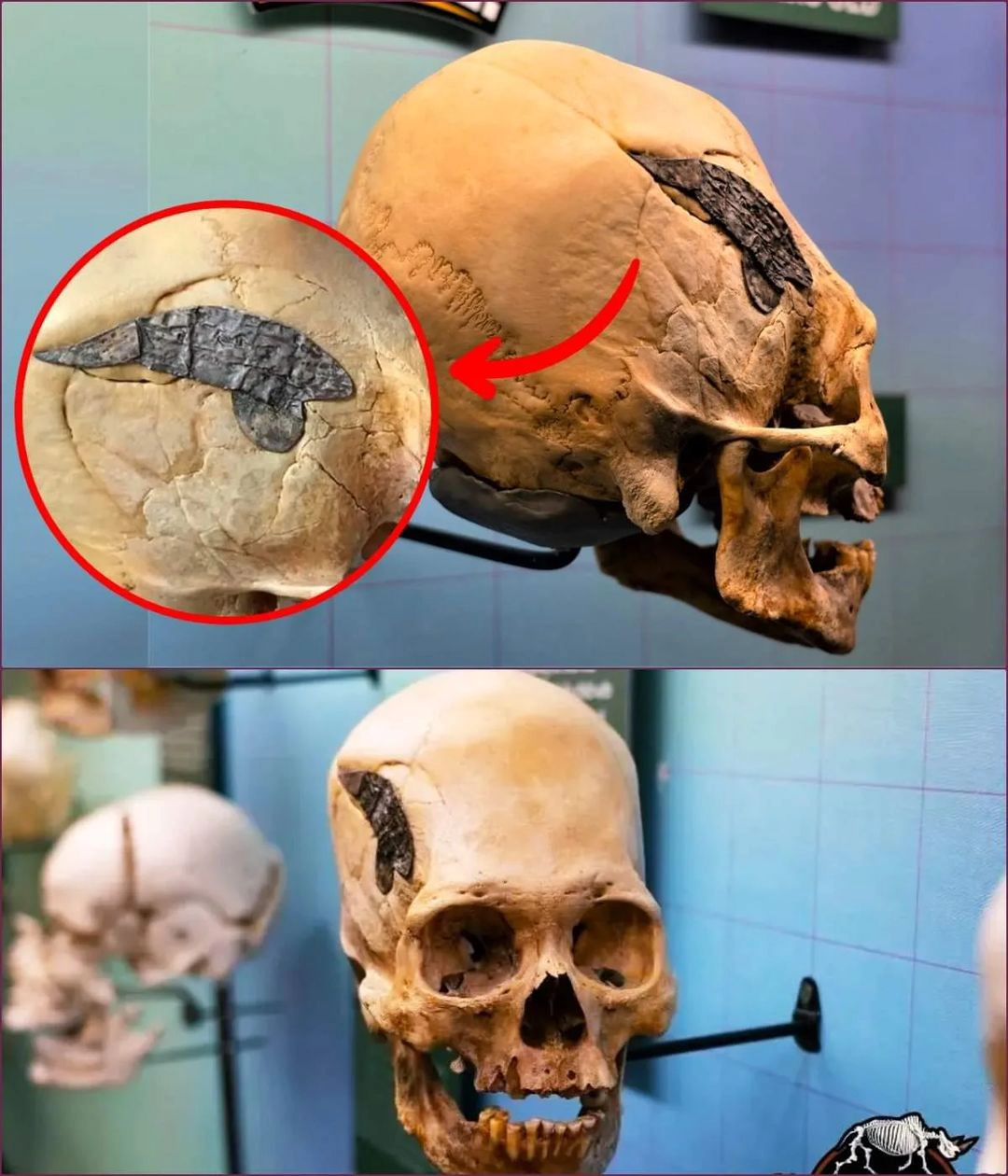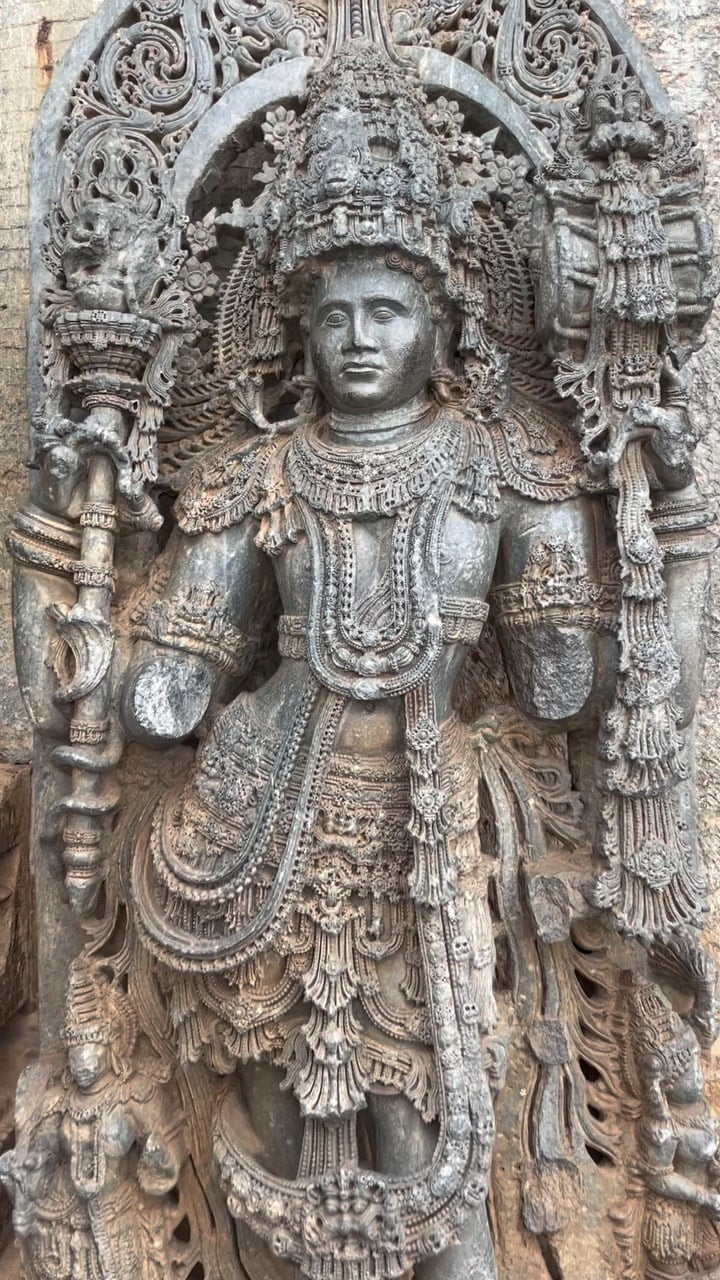The Vijaya Stambha is an imposing victory monument located within Chittor Fort in Chittorgarh, Rajasthan, India. The tower was constructed by the Hindu Rajput king Rana Kumbha of Mewar in 1448 CE to commemorate his victory over the army of Malwa led by Mahmud Khalji in the Battle of Sarangpur. The tower is dedicated to Hindu God Vishnu ⚜️The inscribed slabs in the uppermost storey containing a detailed genealogy of the rulers of Chittaur and their deeds is ascribed to Rana Kumbha court scholar, Atri and his son Mahesh. The names of the architect, Sutradhar Jaita and his three sons who assisted him, Napa, Puja, and Poma, are carved on the fifth floor of the tower
Chittorgarh, a city steeped in history and valor, boasts the awe-inspiring Vijaya Stambha, a monumental testament to the triumphs of Rana Kumbha. This victory tower, situated within the formidable Chittor Fort, stands tall as a symbol of courage and victory. Let’s delve into the historical richness of this architectural marvel, exploring its origins, intricacies, and the cultural tapestry it weaves.
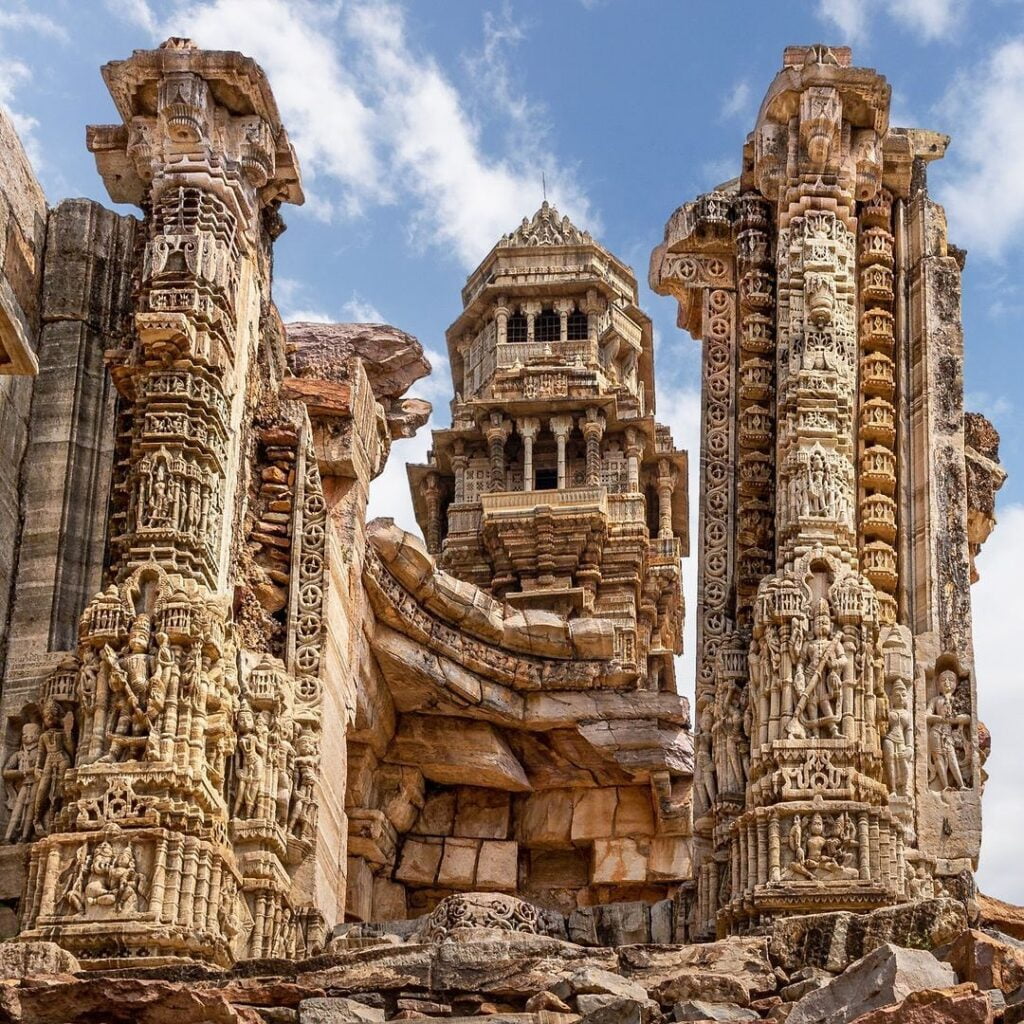
In 1448 CE, Rana Kumbha, the Hindu Rajput king of Mewar, commissioned the construction of Vijaya Stambha to immortalize his triumph over the Malwa army led by Mahmud Khalji in the Battle of Sarangpur. This imposing tower rises proudly, narrating tales of resilience and valor that echo through the annals of time.
Crafted with meticulous precision, the Vijaya Stambha stands adorned with intricate details that tell a story of skilled craftsmanship. The inscribed slabs on the uppermost storey, attributed to Rana Kumbha’s court scholar Atri and his son Mahesh, unfold the genealogy of Chittaur rulers and their heroic exploits. The architectural finesse of Sutradhar Jaita, along with his sons Napa, Puja, and Poma, is immortalized on the fifth floor.
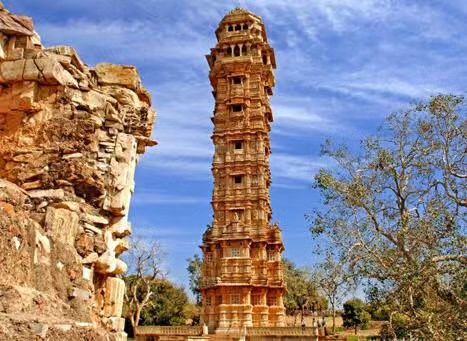
The tower, a dedication to the Hindu God Vishnu, radiates spiritual significance. Its soaring heights mirror the devotion of Rana Kumbha to his faith, intertwining history with divinity. Each carving, each detail, is a testament to the religious fervor that inspired its creation.The inscriptions on the uppermost storey, meticulously crafted by Atri and Mahesh, unravel the tapestry of Chittaur’s rulers. As you ascend the tower, the names of the architect and his sons etched on the fifth floor breathe life into the past. These inscriptions serve as a historical treasure trove, offering a glimpse into the bygone era.
Beyond its historical significance, the Vijaya Stambha stands as a living testament to the rich cultural heritage of Chittorgarh. It beckons tourists and history enthusiasts alike, inviting them to traverse the corridors of time and immerse themselves in the grandeur of Rajasthan’s past.When you set foot in Chittorgarh, a visit to the Vijaya Stambha is a journey back in time. The intricate carvings, the panoramic views from its summit, and the palpable aura of history make it an experience to remember. Climb its stairs, feel the cool breeze, and let the echoes of centuries past guide you through this architectural masterpiece.
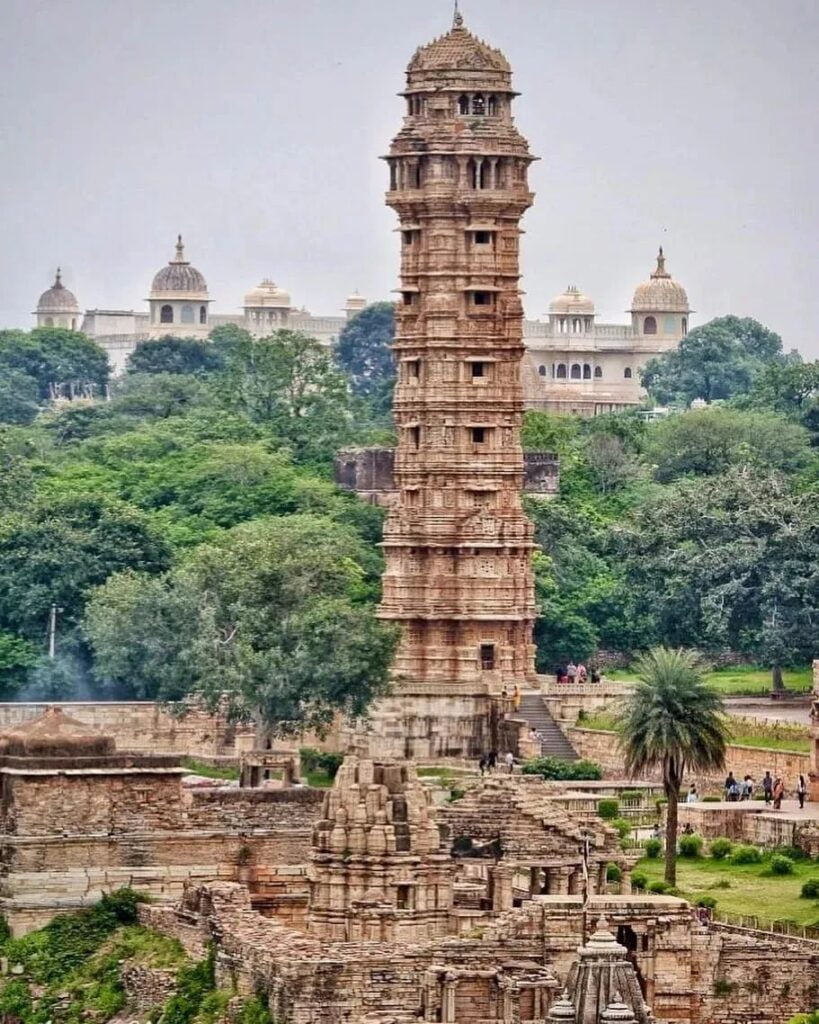
As we navigate the digital landscape, the Vijaya Stambha stands tall not only in its physical form but also in the virtual realm. Online platforms showcase its splendor, bringing its history to a global audience. The relevance of this historic monument transcends time, captivating the hearts of those who seek to understand the roots of India’s rich heritage.Vijaya Stambha is just one jewel in the crown of Chittorgarh’s historical tapestry. As you explore the city, each step unveils stories of valor, romance, and architectural brilliance. The fort, palaces, and temples echo with tales of a bygone era, inviting you to immerse yourself in the living history of Rajasthan.




